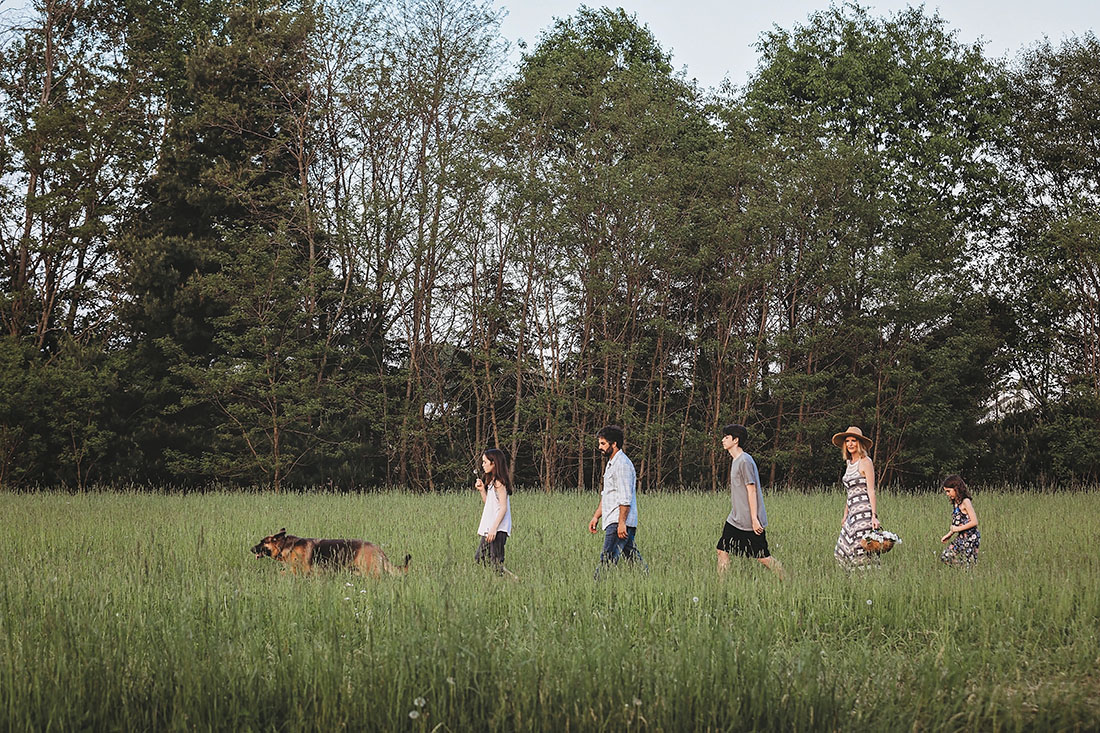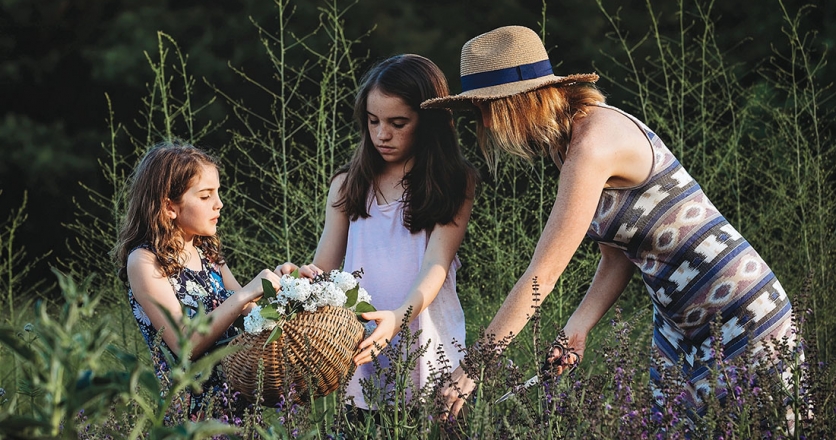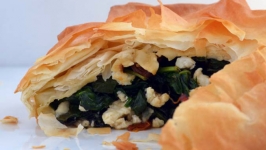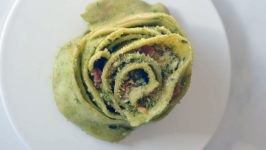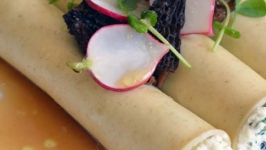The Power of Tea
There’s a good chance Jane Magri ate or drank something with stinging nettle in it today. She may have had some nettle powder in a smoothie, sprinkled some on her lunch or steeped dry leaves as tea.
The wild leafy green with sharp hairs that irritate skin when touched can be used to alleviate everything from hypertension and hay fever to kidney stones and colds.
“When in doubt, reach for stinging nettle tea,” Magri says. “It just stabilizes everything.”
There are plenty of studies in scholarly journals to back up stinging nettle’s medicinal attributes. But Magri, an herbalist and proprietor of Wildflowers Farm in St. Thomas, Ont., can personally vouch for its efficacy, just like she can with many of the cultivated perennial and wild native plants she grows on her bucolic swath where she lives with her beekeeper husband, Chuck, and their three children, Charlie, 15, Sadie, 11, and Rosie Mae, 8.
“We’re so lucky. There’s so much in these gardens,” Magri says. “If we all took the time to learn six plants, we’d be better off.”
That isn’t just her training as an herbalist speaking. It comes from Magri’s own experience as a teen trying to gain control of her health using allopathic medicine and having little luck.
At 17, Magri, who lived in England at the time, coped with anxiety, chronic headaches and stomach upsets. The medication her doctor prescribed for those ailments left her with another ailment all together: a heart rate that sped up so fast she felt as though she was having a heart attack.
“It was horrible,” Magri recalls about her medical treatment. “It didn’t let me feel connected or understand what was happening to me at all.”
Perhaps unexpectedly, it was her dentist who suggested she consider treatment by an herbalist. Magri did and made progress with her condition, her symptoms having been considered holistically rather than in isolation. The experience changed more than her health, however. It changed the trajectory of her life.
“The most important thing he connected me to was the simplicity of how nature can heal. That in itself gives one hope. There was emotion attached to this illness now — as opposed to, 'Here’s a pill and let’s numb that,'” she says. “After that I wanted to understand herbs. I wanted to help people with herbs and [the herbalist’s] advice was to learn all you can.”
Magri began studying the healing power of plants as a passion project. After Sadie was born, she enrolled in a four-year formal training program to become a clinical herbalist at the International College of Herbal Medicine and registered under the Ontario Herbalist Association. She also holds a visionary and shamanic herbalism diploma from The Living Centre in London, Ont., and has completed programs to be an ayurveda lifestyle consultant and yoga teacher.
Though holistic and herbal medicine is considered alternative therapy in North America, it has been deeply rooted in health care in Magri’s native England. Medical doctors there often include homeopathic remedies in their treatments, she notes, so practising it in Canada feels like a bit of an homage to her birth nation.
Before that, however, she learned lessons in herbalism from her travels as a young adult through Australia, Europe and Southeast Asia, where she witnessed people using such therapy, tapping into ancient knowledge passed down through generations, out of necessity.
Another life-changing moment happened during those travels, too. Magri met Chuck in Malta. He led her back to his hometown of St. Thomas in 2006 after starting life as a married couple in the United Kingdom.
Four years later, they bought nine acres just outside of town. It was the chance to connect their growing family to nature. And as a nod to Magri’s spirit — a self-described flower-wearing hippie — and her profession, they named the parcel Wildflowers Farm.
Magri started making healing teas from wildcrafted and cultivated herbs for friends and family. In 2011, she grew the endeavour into a business when she officially launched Wildflowers Farm teas, selling her homegrown blends in brown paper bags with handwritten labels at the local farmers' market.
The herbs and plants hang in a warm, dry place, which helps retain quality, essential oils and shape. It’s a “centuries old” method, Magri explains.
Soon after settling on their farm, the couple opened it up to the public to share the benefits of fresh air and the great outdoors with others. Magri hosted herb walks and classes that started as intimate affairs with small groups.
“People would come out, bring their kids, I’d talk about herbs and I’d make tea. People were enthralled. It was so nice to see this slow unwind when people arrived,” she says.
Meanwhile, the farmers' market, while good for giving the farm a community profile, started to wear on Magri. It became a hustle and standing indoors on concrete for hours at a time away from her children felt counterintuitive to her own well-being, she says. She and Chuck decided an old barn on the land would be the ideal spot to stock and sell her teas instead. Her customers from the farmers' market gladly made the trip for her tisanes.
Chuck sweetened the deal for visitors to the farm, after he read a book about beekeeping and adopted his first hive in 2012. It was synchronicity, Magri says. Today he keeps more than 150 hives, providing more than 300,000 pollinators to sustain the wild and cultivated plants she uses for teas, tinctures and salves. Chuck also sells his honey alongside his wife’s teas.
“We never once considered this would be a dream come true for the business,” Magri says. “It still astounds me how we balanced two passions so synchronistically, but it was unplanned.”
Something else started happening around that time, too. Interest in herbs as preventive medicine or as an alternative to allopathic treatments was increasing. Attendance “maxed out” at those small classes as well as the herb walks Magri hosted.
“People are getting sick of things not working and getting a Band-aid," she says. "People are tired of the Band-aid.”
Magri’s growing and healing season at Wildflowers Farm starts in the spring with the arrival of cleansing greens, including dandelion and that stalwart stinging nettle. Come summer, the focus is on harvesting the Magris’ two acres of cultivated perennials and wildflowers, which include chamomile and St. John’s wort. They reap roots such as burdock in the fall.
The dried harvests become therapeutic teas, tinctures and balms. It’s a lot of work, Magri notes, so she’s chosen to focus her efforts on some herbs over others. The Magris also added to their workload in 2016 when they began hosting garden weddings under a canopy of fruit trees on their property.
Still, as much as Magri helps others heal, even with just a simple cup of tea — steeped for 10 minutes to tease out the greatest benefits — it’s the physical space of Wildflowers Farm that is Magri’s salve, perhaps even more than that omnipotent stinging nettle.
“When I’m in the garden, it’s ‘I’m home.’ Oh my gosh, I’m home. Every time I get back in the garden, it’s like ‘Oh, this is it,’” she says. “I have this saying that when I get lost in nature, I am found. It is that same kind of feeling.”
Wildflowers Farm
42338 Fruit Ridge Line, St. Thomas, Ont.
wildflowers.farm | 226.926.6432 | @wildflowersfarm


